Why Reporting Nursing Home Abuse Helps
Why Reporting Nursing Home Abuse Helps
When you are considering reporting nursing home abuse or neglect, know that your complaint can help in a number of important ways. When state investigators receive a complaint, they have significant power, such as entering the facility without notice, pulling and reviewing patient records, interviewing staff, addressing the issue of concern, and in doing so, preserving important evidence. Inspections and investigations may be conducted at any time, including weekends, 24 hours a day. This process is critically important for several reasons.
Help Prevent Immediate Harm To Patients
First and foremost, reporting nursing home abuse or neglect to a State investigator can help put an immediate stop to an ongoing problem that’s either harming a patient or has the capacity to harm a patient. In doing so, the investigator’s actions can also help prevent similar harm to other patients. For example, let’s say that you have a loved one in a nursing home who has pressure sores that you believe are associated with inadequate turning and repositioning at night due to understaffing… you can file a complaint with the State and have the situation investigated. And because of the likelihood that other patients in this nursing home may also be similarly harmed, a State investigation will likely take place within days of filing your complaint. If, in fact, the investigator can find evidence substantiating that the nursing home was understaffed and failing to properly turn and reposition its patients, the State will require the nursing home to prepare a Plan of Correction designed to correct the understaffing problem and subsequent failure to implement proper pressure sore prevention interventions. By filing your complaint, you have quite possibly intervened and effectuated changes at the facility that may not only prevent further harm to your loved one, but also help protect the facility’s other patients.
Help Force The Nursing Home To Comply With Safety Regulations They Promise To Follow
Second, by reporting nursing home abuse or neglect to the State you can help hold nursing homes that allow and enable neglectful or abusive care accountable. With so much data showing how common nursing home abuse and neglect is, the importance of filing a complaint is clear. All nursing homes that accept Medicare and/or Medicaid dollars promise that, in return for receiving these taxpayer funds, they will render care in a manner that ensures that patients’ needs are met. Nursing homes that either cannot or will not render care in accordance with these required minimum standards should not be permitted to receive the same Medicare and Medicaid funding that other nursing homes, which do ensure their patients’ safety and well-being, receive. By filing a complaint to alert State investigators of substandard care, you’re helping to hold bad nursing homes accountable so that they’re either forced to improve practices or face the prospect of losing their most significant revenue streams — Medicare and Medicaid.
Help Alert The Public To Patterns of Neglect/Abuse
Third, by filing a complaint that results in a deficiency citation that forces the nursing home to develop a Plan of Correction means that the resulting Form HFCA-2567, Statement of Deficiencies (referred to as “2567”) report will become a matter of public record. This report will be available online at the Nursing Home Compare website and, in many instances, other State nursing home sites. In addition, nursing homes are required by law to have their latest survey results available to the public for review. This information, which is made public within the nursing home and online, is arguably the most valuable objective information about the facility’s track record that you can find. Though certainly not perfect, these reports tell you much more about the level of care being rendered within a facility than do the shiny marble floors and beautiful landscaping that the nursing home marketing directors like to point out to you. The problem is, these 2567 reports are only generated annually, at the time of the annual survey, unless interim complaints are filed by concerned families, patients, staff members, or others.
Help Uncover and Preserve Importance Evidence
Fourth, by reporting nursing home abuse or neglect, you help ensure that the State investigation will generate and preserve evidence that may be required to successfully pursue a criminal action or civil lawsuit against the nursing home should actions become necessary. Importantly, these 2567 reports can be used to establish that those responsible for the nursing home were put on notice of substandard care issues within the facility, had a duty to correct the problems, and despite promises to correct them (the Plan of Correction), ignored them and continued to conduct business as usual, which ultimately led to further neglect, abuse, and harm. For example, if a nursing home has been cited multiple times within a year for failing to ensure that the proper policies and procedures were in place to prevent medication errors and a patient suffers a tragic death due to a misadministration of medication, the patient’s family should be able to use the evidence from prior 2567 reports to demonstrate that the facility was put on notice of deficient care practices, promised to make the necessary corrections, but failed to do so. In addition, the filing of a complaint permits the State investigator to enter the nursing home without notice and preserve evidence by copying pertinent medical records, interviewing staff members privately, and obtaining information from other patients.
How Reporting Nursing Home Abuse and Neglect Helped Protect Many Patients
In one recent Indiana case, a patient was allowed to develop a horrible, necrotic pressure sore on his tailbone area that drained purulent fluid indicating infection. This elderly patient needed to be turned and repositioned regularly in order to prevent pressure sores; however, the patient’s medical records confirmed that the facility staff was not utilizing a turning and repositioning program at that time. It was suspected that the nursing home, as is so often the case, was not providing adequate staffing to allow for proper care, including making sure the patient was being turned and repositioned frequently enough. Close examination of the facility’s 2567 reports found that the state investigator had confirmed and documented compelling evidence of understaffing.
According to the investigator’s 2567 investigation report:
A female resident told the investigator she waited “a half hour…maybe longer” for staff to answer her call light, causing her to experience both urinary and bowel incontinence as a result of having to wait.
Another female resident told the investigator that: “You have to wait half an hour to an hour for them to answer your light. It just seems like they don’t have enough people to cover the care… I’ve had accidents [incontinence] …I recently had a bowel movement… it’s embarrassing. I don’t care how old you are.”
A nurse aide told the investigator: “We can’t always get everyone toileted like we’d like [due to staffing/not having enough help]…Sometimes there are three [residents] at a time [who require/request toileting assistance…]”
Several nurse aides told the investigator that facility management, LPNs and RNs…did not assist CNAs in answering call lights, toileting residents, or with dining room/meal times. Each of the nurse aides told the investigator that they have expressed concerns regarding staffing and nursing/management not assisting with resident care. Each nurse aide told the investigator that management was unresponsive to their concerns.
A female resident told the investigator: “We don’t get enough ice water because there’s not enough staff. The other night I said, ‘Why am I not getting any ice water?’ and they said it was because they only had three people here and one of them was with [another resident].”
Because someone took the initiative to file a complaint, the investigator was able to enter the facility, gather evidence and uncover evidence of systemic understaffing that was affecting the quality of care received by multiple patients within that facility.
In addition to helping demonstrate that those responsible for the nursing home were put on notice of a problem and chose to ignore it, 2567 investigation reports can help prove that a nursing home has a routine practice (pattern of behavior) of neglecting or abusing their patients. Generally speaking, the law in most states allows for evidence of an organization’s routine practice to be admitted to prove that on a particular occasion, the organization acted in accordance with the routine practice. Thus, the 2567 reports can help demonstrate that nursing home is engaged in a routine practice that leads to the neglect of its patients, as reflected in the series of 2567 reports.
So, the bottom line is this: if you have concerns about nursing home neglect or abuse, you should report it. Filing a complaint is quick and easy. By taking the time to do it, you can help make a difference.
For information about filing how to request an investigation of nursing home abuse and neglect, click here.
****
 Jeff Powless is an attorney and the author of the 2017 book, Abuses and Excuses: How To Hold Bad Nursing Homes Accountable. Abuses and Excuses breaks new ground in helping patients and families hold bad nursing homes accountable, sharing a wealth of insider strategies and insights. It’s an eye opening account of corporate greed, acts of neglect and abuse, an insidious industry culture of cover-up, and the actual harm that inevitably befalls vulnerable nursing home patients all across the country with shocking frequency.
Jeff Powless is an attorney and the author of the 2017 book, Abuses and Excuses: How To Hold Bad Nursing Homes Accountable. Abuses and Excuses breaks new ground in helping patients and families hold bad nursing homes accountable, sharing a wealth of insider strategies and insights. It’s an eye opening account of corporate greed, acts of neglect and abuse, an insidious industry culture of cover-up, and the actual harm that inevitably befalls vulnerable nursing home patients all across the country with shocking frequency.
YOU MAY ALSO BE INTERESTED IN:
Indiana Law Protecting Deadly Nursing Homes Challenged
Complaint Filed After Patient’s Femur Broken By Nursing Staff
Indiana Senior Care Ranked Dead Last According To AARP Report
